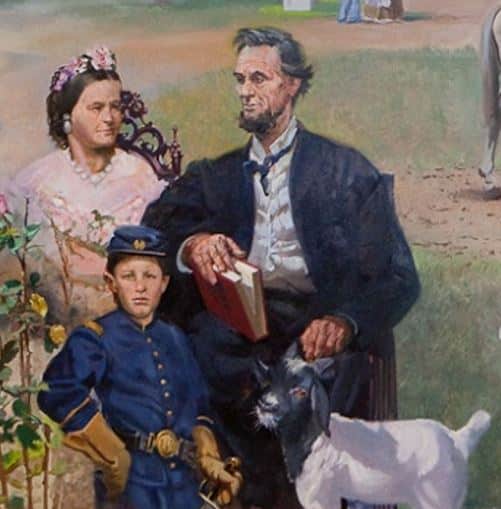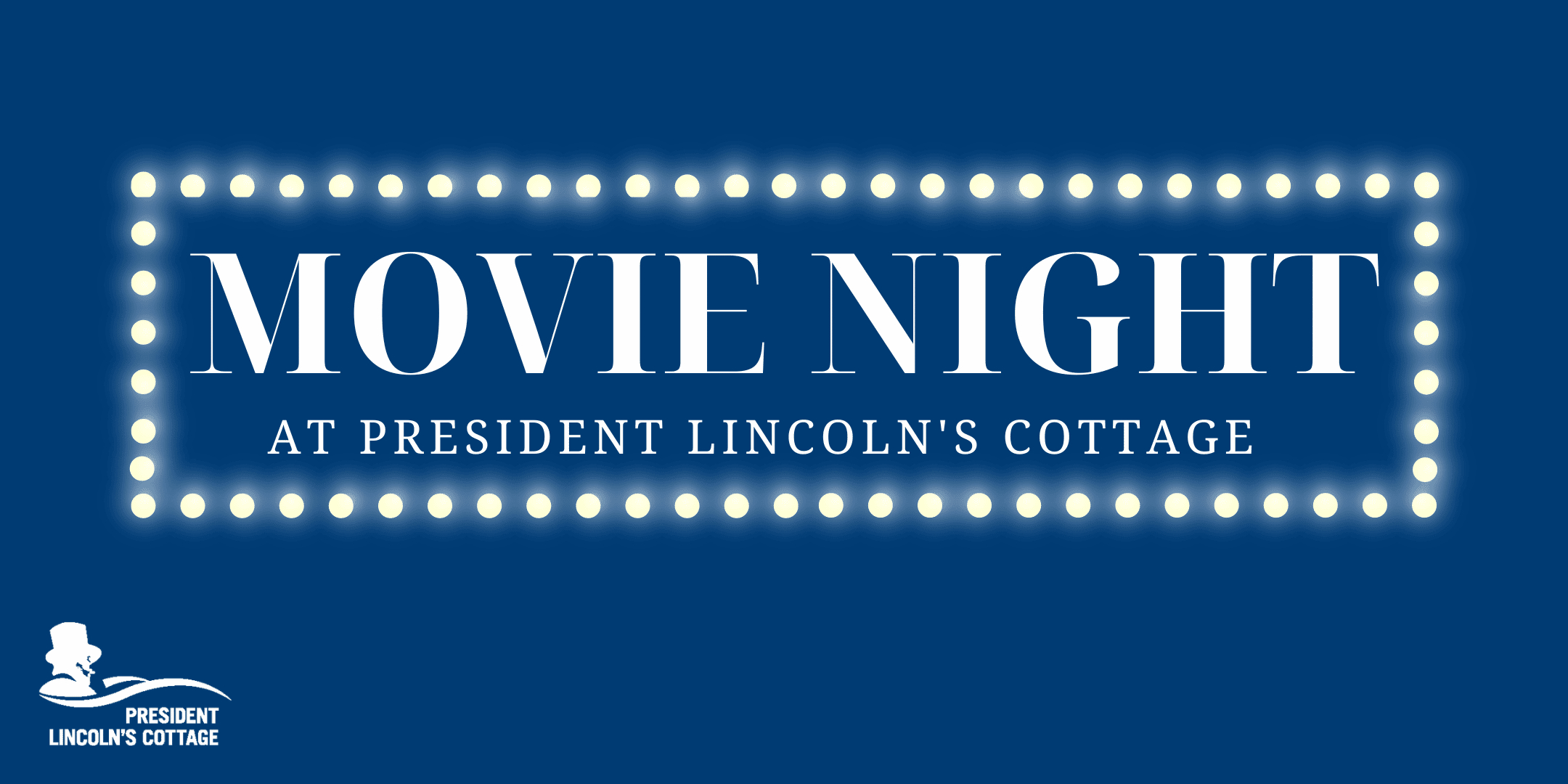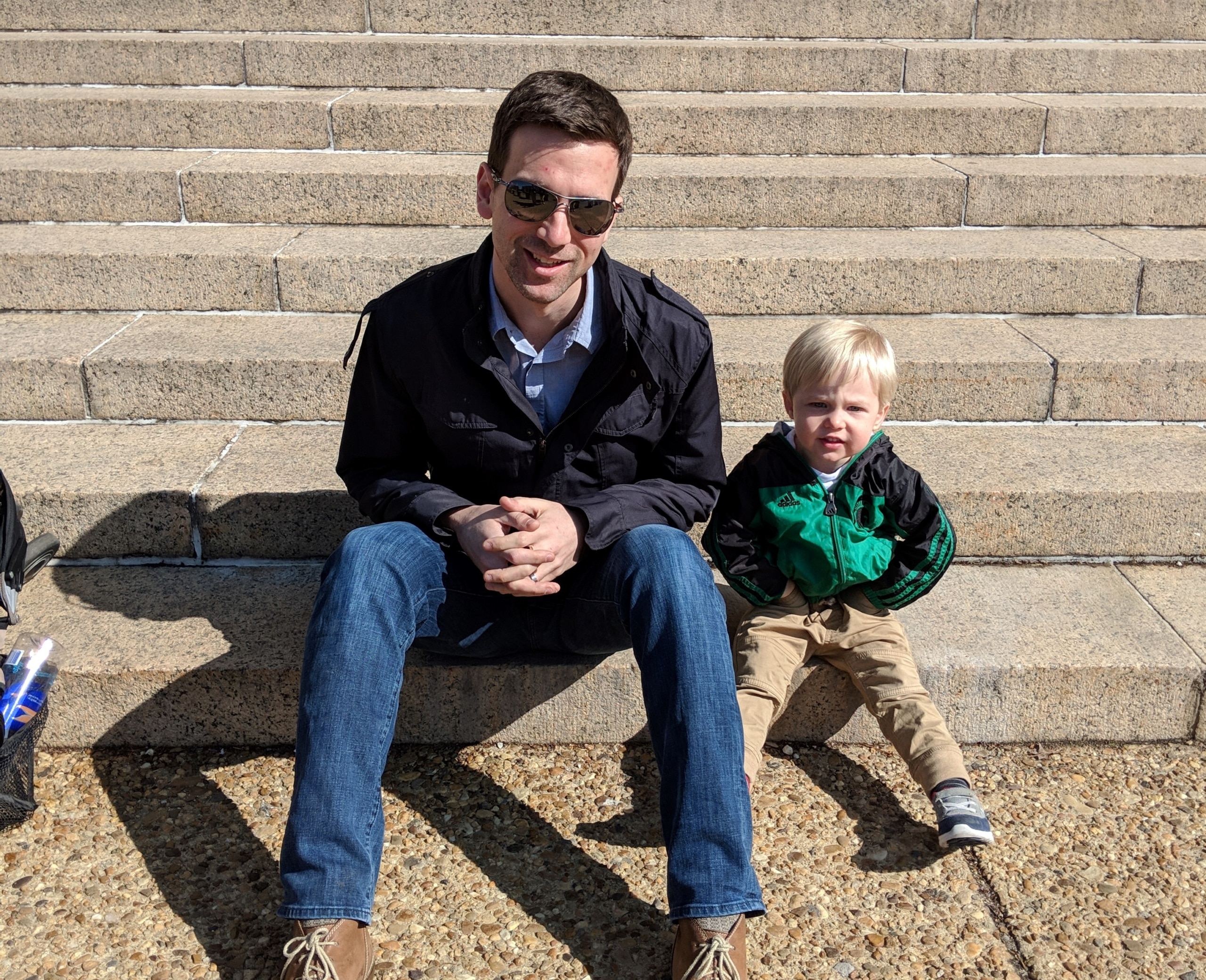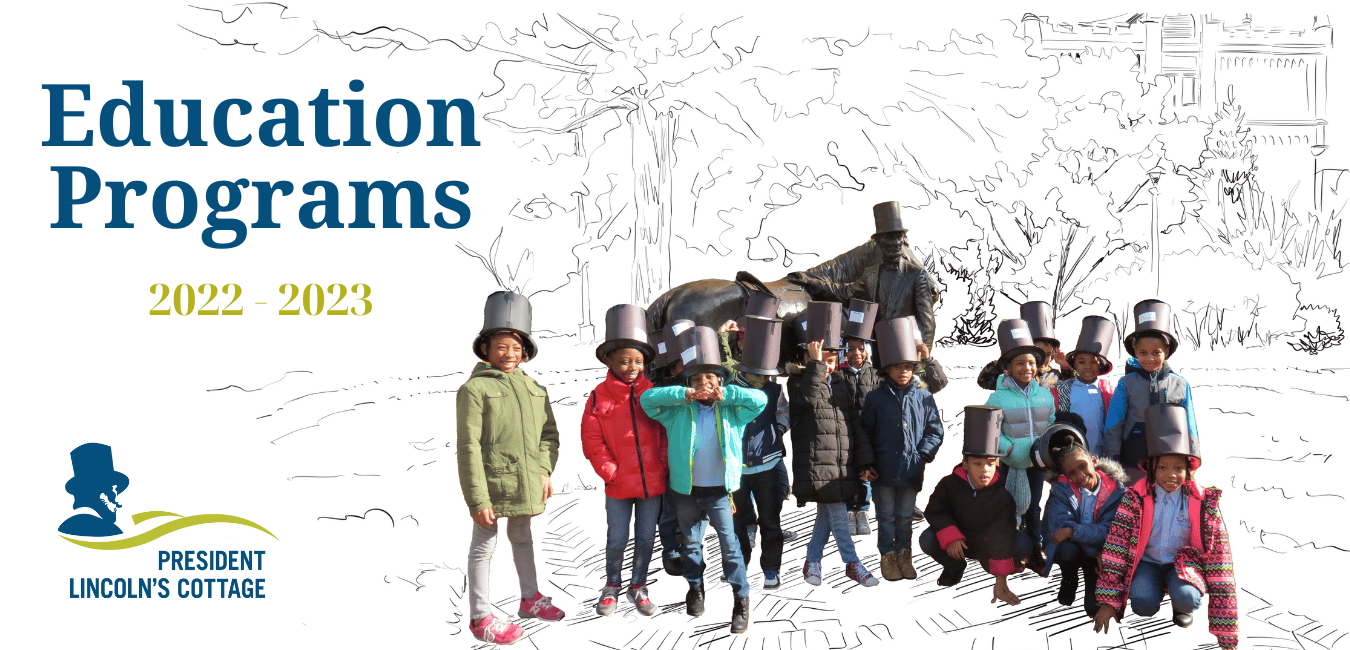Learning from Teacher in Residence, Brian Field
On a day that many local children returned to school, our Marketing and Communications Manager, Rebecca Kilborne, sat down with our Teacher in Residence, Brian Field. Brian is a local history and social studies teacher who has spent the summer working with President Lincoln’s Cottage and our partners at Game Genius to create a game to inspire civic action among students.
The opinions expressed in the interview are his personal views and do not reflect the views of his employer.
Rebecca Kilborne: Hi Brian! Can I call you Brian? What do the kids call you? Tell me a little bit about yourself and how you ended up as the Teacher in Residence at President Lincoln’s Cottage.
Brian Field: Of course you can call me Brian! My students call me Mr. Field. I have taught in Haiti at an American International School and found my way up to Northern Virginia, where I teach at Thomas Jefferson High School for Science and Technology for almost a decade now. My wife, Kelly, is also a social studies teacher who is at James Madison High School, so my two children Theo (6) and Juliette (3) probably won’t have the most exciting dinner conversations. I usually do more internal work for Fairfax County Public Schools but I saw your email about the position and it sounded like it was something I wanted to be part of and felt like I had something that I could offer. I have to say that my time with Lincoln Cottage has been an amazing experience with the people I’ve met and worked with.
RK: Had you been to the Cottage before becoming our Teacher in Residence?
BF: I visited the Cottage once before the pandemic and it is one of those places that just stays with you. It’s all about the stories which just captured my attention. I think sometimes, there are flashy things at museums to keep your attention and it is overwhelming, but it is the stories that really get the mind turning. Telling the stories can be a lot harder to do though. I have to say when I left Lincoln’s Cottage I was continuously thinking about it. In the Teacher in Residence role, I have toured it multiple times now and it really doesn’t get old. I always find something new. One of my favorite things I’ve done is spend a lot of time on the veranda just looking out and listening to the surroundings for a while. I see why Lincoln spent so much time there.
RK: How did you become interested in game-play as a teaching technique?
BF: I’ve always had an interest in creativity in the classroom and reading up on it. I think it is funny because a lot of the time we think that we are either creative or we are not and the reality is that it can be learned. We don’t give ourselves enough credit. As we get older though, we tend to lose that ability to play and we spiral into this idea of doing work. Games introduce that ability to play and let the mind free to explore and manipulate things. There is competition, cooperation, strategy, trial and error…You do a lot when you play a game. I started with just simulations like a lot of teachers trying to replicate real life situations but then I just started to explore it in other areas. I started to create some of my own card games to teach some concepts. It is not something I do every day but if you have the right concept and design the right game, it can be really effective and fun. I think a lot of my inspiration is with my own two kids who are both under 7. When they learn something new, they have peer joy and excitement, which I feel like I am always trying to get back to as an adult. We can learn a lot from kids.
RK: What was the inspiration behind the game you are working on for President Lincoln’s Cottage?
BF: Lincoln Cottage is a home of brave ideas. Lincoln would go there to contemplate ideas and just get away from the busyness of the White House and DC. I mean this is where he developed the Emancipation Proclamation. He would scribble notes and keep them in his hat to the point that it is said his valet, who collected the notes at the end of the day, knew every word of the Emancipation Proclamation before it was even released. So that is something we wanted to capture, and the other inspiration was after reading the children’s book, “What do you do with an Idea?” It really got us to think about how do you develop ideas and support this in the classroom. The game felt like a natural fit. You have to play with ideas and experiment with them and manipulate them. There is interactive play when you are engaging with ideas. Your first ideas are rarely your best ones. So we wanted to have fun with that and see if we could replicate and practice the process in a game. It is something that students can learn and utilize to develop their own ideas. They will care about something sometime in their life and we wanted to give them that confidence to make the most out of their ideas. We also really considered trying to make it teacher friendly by making it flexible and be able to be played by multiple grade levels over varying time lengths. We understand that not every classroom is the same and time is always a factor in the classroom. And even more important: there will be a free-version for teachers online because we strongly believe that everyone should have the opportunity to have fun and be brave with their ideas.
RK: What kind of civic engagement does the Cottage inspire? How does this game fold into that?
BF: I always kind of keep going back that the Cottage is a home of brave ideas. Civic engagement is about having ideas and passions and being strong enough to express them. It is not up to us to come up with the ideas for the students. What we can do is help teach students to develop a process to allow their ideas to grow, essentially providing that incubator for them. Students need to have an ability to pursue their interests and if they become passionate enough, it will provide an opportunity to spread into their community. It is very difficult to pursue your ideas in isolation. Individual and communities depend on each other. Communities offer individuals opportunities to grow and when individuals grow they are able to give back their talents to the community. The game provides a fun, unique way to learn and practice that process and to have students take a small inspiration for an idea and to help nurture it into something that they can be proud of. Just imagine what our community could be if every student has the confidence and the voice to do something with their ideas.
RK: What are your favorite games? Are there any games you like to play with your students?
BF: Honestly, my favorite games have really started to be the ones I play with my own kids. We play Stratego, Rubiks Race, That Time You Killed Me, Ticket to Ride, and chess. We have game day once a month that the kids have a lot of fun with. If I play games in the classroom, I find that I need to adapt them or create them so that I can utilize them with the timeframe I have for my lesson. I think we really have to be thoughtful and precise on how we utilize games in the classroom because if we are not then it just becomes filler and lacks the educational value. This is part of the reason that I think games have that sort of reputation and not always considered for educational purposes. It is something that we always considered when developing the game at Lincoln’s Cottage. Through research we recognized social studies games are really centered around trivia and geography, and we wanted to offer something new and different for the classroom to engage students thinking. One of the questions we needed to answer was if this game was going to be geared towards the home or the classroom. We made the decision to focus it on the classroom. The challenge was how to design a game that fits in a variety of classrooms and will be usable by all teachers. That is where focusing on developing ideas came in. This is where we felt we can make a small contribution to support teachers.
RK: Finally, as a social studies teacher, what are the current challenges you face teaching history today—especially the history of Civil War and slavery at such a divisive moment?
BF: Teachers are constantly making choices in the classroom on what to teach every single day because the reality is that even though we would love to, it is just not possible to teach everything. History teachers are choosing what to teach by the standards but also on how to create the fullest perspective with the time allotted to develop student inquiry. I think what often gets misrepresented is that by teachers including perspectives that it must mean they are promoting or advocating a perspective. Including perspectives does not equal advocacy. You see we need difference in order to generate inquiry in the classroom which ultimately allows students to think. By removing difference then there is no thinking and there is nothing to compare. What you are really eliminating is providing the opportunity for students to choose. It is not the teacher who determines the outcome but the students who make their own decisions. I think every parent knows that you cannot force your kid to make a particular choice. They are really independent in wanting to do things on their own. I find it interesting that teachers, classrooms, and schools have recently been reported in the media with a negative tone but according to Ipsos teachers are the 4th most trusted group, and, if you really start thinking about it, possibly the most highly trusted public servant. Teachers, parents, and students are all part of the same community, and we need to start thinking of us as one community so that we can make it stronger.
RK: Thanks so much, Brian, for all your hard work on behalf of the Cottage, and for making time for this interview during the madness of back-to-school week! Best of luck for the upcoming year, and we can’t wait for the debut of this Cottage-inspired game!
The Teacher in Residence program was made possible with the support of the Marder-Vaughn Center for Historic Sites Interpretation and Education at the National Trust for Historic Preservation.

Our 2022-2023 School Programs Brochure is out now!
Abraham Lincoln navigated difficult times and did some of his most consequential problem solving at President Lincoln’s Cottage. The Cottage is here to support teachers as they navigate today’s challenges with both in person and virtual experiences to build empathy and motivate students to pick up what Lincoln called the “unfinished work” of democracy.
Goats Return to President Lincoln’s Cottage: Lincoln would be thrilled

People refer to Lincoln as the GOAT (Greatest of All Time). The normally humble Abe might just take a shine to the sobriquet because he was a great goat-lover. The family’s caprine pets, Nanny and Nanko, were summer residents of President Lincoln’s Cottage, although Nanny was returned to the White House after an irate gardener found him munching the Cottage gardens.
It is right and fitting that goats will grace these grounds once more on September 17th for our Cottage Homecoming! Squeals on Wheels will provide a petting zoo featuring goats and other furry cuddlers (hello alpacas!). There will also be pony rides for the children. Lincoln and Tad would approve!
Vote Today for our Final Outdoor Movie Night!

Abraham Lincoln narrowly missed the advent of film, which is a shame. One could imagine he would have loved the movies with his affinity for theater and infatuation with photography and technology. Had he lived to a very old age he might have witnessed early public screenings. But alas, that was not to be.
So today we are holding Friday family movie nights in his honor! Our first two movies, Onward and Ghost Busters, will take place on September 9th and October 14th respectively. Onward explores the meaning of fatherhood, and Ghostbusters deals with rescuing a “house-divided” when a city is under attack from evil ghosts. But what will our final movie be??
Vote today for Bill and Ted’s Excellent Adventure, which features a cameo by a certain president, or Inside Out which deals with mastering emotions.
President Lincoln’s Cottage in the News
- Petworth News shared a letter from our Director Michael Atwood Mason inviting the community to our Homecoming and promoted our Movie nights.
- C-SPAN 3 shared a panel discussion where Dr. Matt Costello of the White House Historical Association references the Cottage and history of the the Emancipation desk.
- History New Network shared a piece by President Lincoln’s Cottage founder, Richard Moe, remembering the late historian David McCullough as a champion of preservation.
SUPPORT PRESIDENT LINCOLN’S COTTAGE
Support our educational programs, preservation efforts and public events by making a contribution to President Lincoln’s Cottage. Donate online today.




